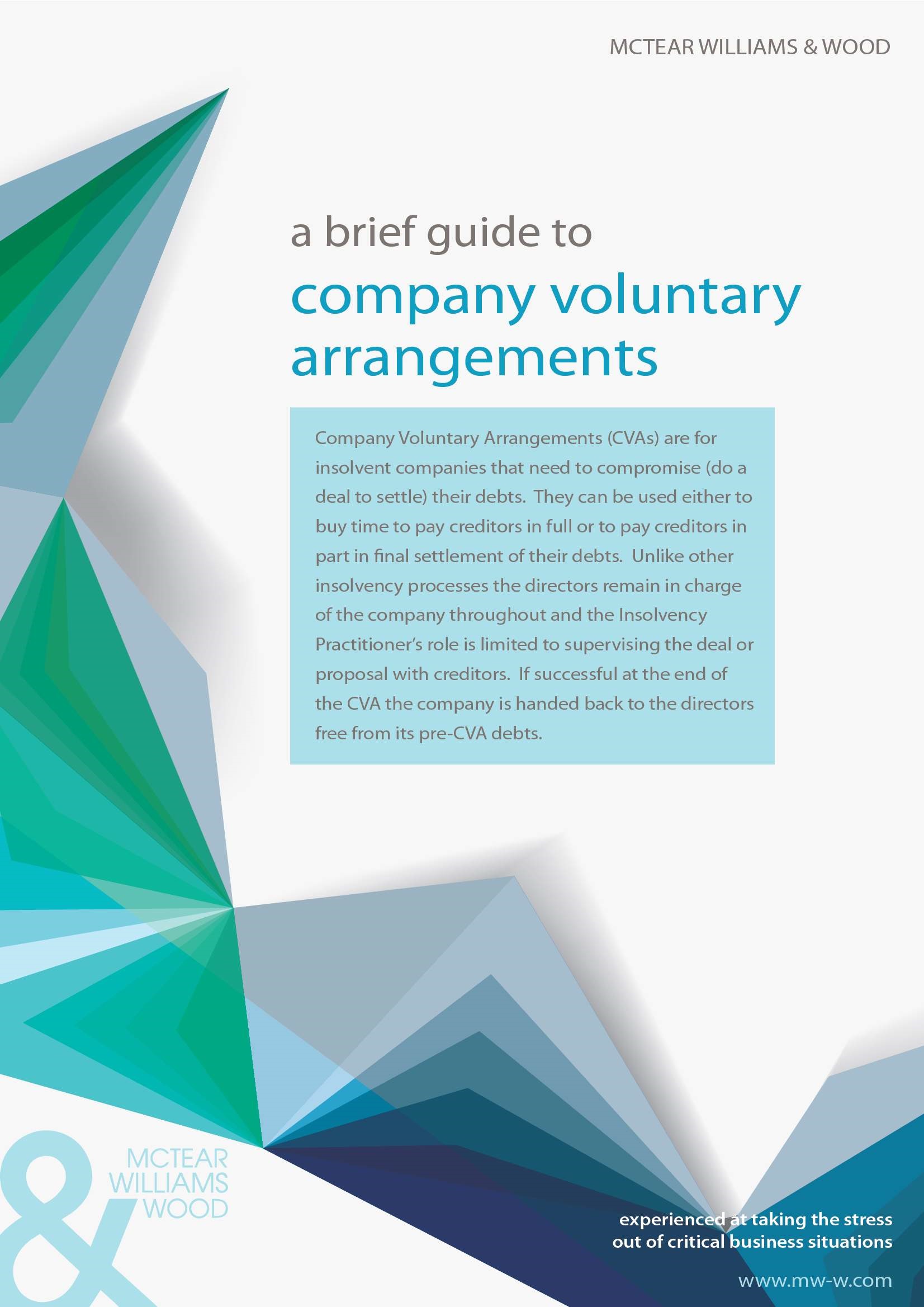Company voluntary arrangement
A positive way forward for a potentially viable business. You may have heard of the Chapter 11 process in the US where companies attempt to trade out of difficulties while receiving Court protection from creditors. A company voluntary arrangement ("CVA") is the nearest UK equivalent. A CVA allows directors of a company in financial difficulty to reach an agreement with its creditors regarding payment of its debts. The CVA process has to be carried out by a licensed insolvency practitioner but unlike administration and liquidation the directors remain control.
The advantages of a CVA is that creditors cannot take action against the company during the CVA and once it has been completed the company has no liability to its pre CVA creditors. Although a CVA is not suitable for every company in financial trouble it can allow the company to trade through its difficulties and give the directors more time to get their finances back on track without threat from creditors.
How can McTear Williams & Wood help?
Agreements are usually reached in situations where creditors stand to gain more taking this route rather than forcing a company into liquidation. We can set out the terms for the creditors on the company's behalf. As the appointed insolvency practitioner we would help the directors to satisfy stakeholders that the business is a 'going concern' operating under fundamentally sound practices and it is worthwhile creditors supporting this approach.
When might a company voluntary arrangement be appropriate?
- When a company is struggling under the burden of debts but still a viable business.
- For directors wishing to retain control of the company so the company can trade out of difficulties.
- If creditors can be reassured that the repayment proposals are realistic.
CVAs are usually only available to companies that have a potentially viable business that has not been too damaged by a prolonged period of financial difficulties. Seeking early advice can mean the difference between rescue and insolvency.

